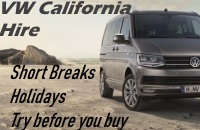Once a developer has
Unfortunately that is your definition of a Caravan. Redrow might have their own and that is the problem. The best way forward is to get confirmation in writing.
True. Since found below, so potentially looks quite complex as your neighbours can take the action depending on how the covenant is worded:
//
But, whilst the first step is to check for a restrictive covenant, the next step is to determine whether it is enforceable. Some will be imposed only for a certain time (e.g. 5 years), some will prohibit caravans/vans without consent from a specific person or company, and yet others will appear to be absolute prohibitions.
The latter is where the complication arise. How to challenge what appears to be an absolute restriction. Restrictive covenants are highly technical for any lawyer, and even court cases come to different decisions. But again, your
conveyancing solicitor is there to advise you. What they will look at is whether the definition above is satisfied, and then whether the developer enabled a neighbour to enforce the covenant against you – called a Building Scheme where similar convents are imposed on every property in a development and the ability to enforce is given to each owner against each other – or failing this, they look at the order of the house sales, as a restrictive covenant when imposed must benefit land refined by the developer. If the neighbour bought after your, then they may be able to enforce against you.
However, let us not forget the practical side of things, whatever the legal position. If the deeds do have restrictions which prevent caravans and commercial vans, then you may have overlooked checking them, or you may have deliberately ignored them. A lot also depends on the quality of conveyancing solicitors who act for buyers these days. Your
conveyancing solicitor – if you just bought your property – should have drawn your attention to restrictive covenants such as these, and most do. Indeed, if you have an intention of parking either and are thinking about purchasing a property, draw this to the attention of your conveyancing solicitor.
If you are aware of the restriction, you may have taken a gamble that your neighbours will not enforce against you. That is risky and could be costly for you. Neighbours can club together reducing the legal cost per individual to minimal figures, and court action can be taken swiftly and effectively. You may also create a neighbour dispute in the process and that can impact the resale value of your property when you come to sell, as no buyer from you will want to move into a hostile environment.
//



















